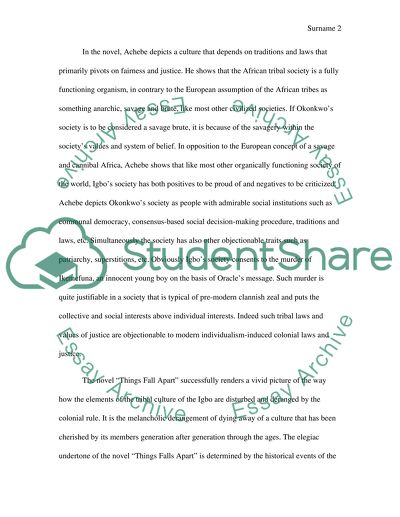Cite this document
(“Themes of Justice in Things Fall Apart Assignment”, n.d.)
Retrieved de https://studentshare.org/literature/1585276-themes-of-justice-in-things-fall-apart
Retrieved de https://studentshare.org/literature/1585276-themes-of-justice-in-things-fall-apart
(Themes of Justice in Things Fall Apart Assignment)
https://studentshare.org/literature/1585276-themes-of-justice-in-things-fall-apart.
https://studentshare.org/literature/1585276-themes-of-justice-in-things-fall-apart.
“Themes of Justice in Things Fall Apart Assignment”, n.d. https://studentshare.org/literature/1585276-themes-of-justice-in-things-fall-apart.


